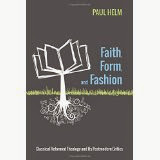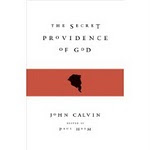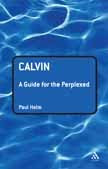When we use if-then sentences we enter territory that can be very complicated.
If George is a man then he is a person
is importantly different from
If George has run a mile then he will be out of breath
and from
If George has spots then he has measles
and from
If George had run harder then he would have won the race.
It is important to stress that these differences are not simply differences in the English language. They are differences in thought, fairly fundamental ones. The different sentences express different types of thought, and any language with a sufficiently nuanced grammar and vocabulary will be able to provide translations of these English sentences. To study them in English or in some other language is to try to discover more about what our various thoughts mean. This is very important when we read the Bible.
Our study of the Bible, if it is to provide us with an understanding of the thoughts expressed in its pages, cannot stop at the study of the original languages, important though that is. For the same need for reflection that arises in trying to understand if-then sentences in English arise in the case of their equivalents in Greek and Hebrew. A study of the Greek gives us the lexical meaning of nouns and verbs etc., and of sentence construction. But for the implications of if-then sentences containing Greek nouns and verbs we need to think about logical structure, and this takes us away from lexical meaning and grammar and into what the implications of certain Greek sentences are for thought, what different thoughts may be being expressed by one and another of these if-then sentences. Put in a rather grand way, in studying sentences in this fashion we then start to think about reality and what it is about reality that these sentences tell us.
This is one reason why the idea of a ‘purely biblical’ exegesis is a myth and can be a dangerous and misleading myth. For it suggests that there is such a thing as purely biblical logic, forms of thought that are untranslatable into other natural languages than the original languages, whose grammatical and (especially for us) logical structure cannot be displayed in languages other than the originals. (One occasionally gets the same sort of nonsense talked about biblical arithmetic. I once heard an academic who say that the Trinity teaches us that there is a biblical arithmetic, since it teaches that 1+1+1=1 (That reminds me of another occasion when I heard Bruce McCormack say that the threeness and oneness of the doctrine of the Trinity is ‘metaphorical’. Hard to credit it, isn’t it? Metaphorical numbers!)
The idea that there is purely biblical thought, purely distilled from the original text, and distinctive from any other text all the way down, so to speak, is connected with the belief that such biblical thought is easily contaminated or infected by ‘Greek ideas’, ‘western logic’ or whatever. This also is so much tosh. Restricting ourselves to the words on the page, and with lexicons and grammars in our hands, together with a whiff of extra-biblical knowledge about (say) Second Temple Judaism or ancient treaty forms, are not sufficient to tell us what the text means.
It has to be recognised that comparing Scripture with Scripture is of positive help, because this discipline introduces us to the variety of expressions, including the variety of logical forms, in Scripture. But we need also to identify these different forms in abstraction from the text, and to acquaint ourselves with them. So when, for example, we encounter some if-then sentence in Scripture, we need to reflect upon what sort of an if-then sentence it is. Further study of Greek and extra-biblical history won’t, at this stage, help us much. We need, in addition, some logic. In fact, the only prospect of truly theological exegesis arises if the exegete is prepared to compare Scripture with Scripture in coming to the meaning of any text, and if he has an approach to logical form that is not naïve.
The need to compare Scripture with Scripture is obvious, but not easy. Theological exegesis is global. That is, it offers the contribution of the meaning of one text or passage to the meaning of the whole of Scripture, and the contribution of the whole of Scripture to it. A large, never-ending task. Without this process of comparison and control, exegesis becomes faddish. Besides this inductive approach to every word that proceeds from the mouth of God, we need a further dose of logic to help us understand these connections and disconnections and to engage in the harmonisation of the whole. But we also need some prior understanding of what the Bible is about, what is central and what is peripheral. It is irresponsible to take any old text and draw inferences from it; we need to have due regard firstly to the context in which the text occurs, then to ‘the analogy of the faith’. Hence the Westminster divines wrote of ‘good and necessary’ inferences. The inferences must be drawn from ‘good’ texts – texts that are clear, central and relevant to the topic in hand.
The logic that we need is not complex, because in the Bible we are dealing largely with non-technical language, not the specially regimented language of the formal logician. The distinctions that the theological exegets prods and pokes often occur in ordinary conversation.
To see this we could do worse than takine a look at that invaluable resource, Alexander Cruden’s A Complete Concordance to the Holy Scriptures of the Old and New Testament (1761). The first paragraph under the entry ‘If” is as follows:
Signifies, [1], Surely, Num 14.23. [2] Whether or no, Gen. 8.8. [3] When, Judg. 21.21, John 12.32. It denotes [1] A condition, Deut. 28.15. Luke 9.23. [2] A supposition, Rom.4.2. 1 Pet. 3.17. [3] A reason of a matter, Eph. 4.21.
(James Stong does not attempt anything like this, but unlike Cruden he does list eight columns of ifs.)
So then, according to Cruden, there are three different kinds of if-then sentence in Scripture, ones that express either a condition, or a supposition, or a reason of a matter. Deut 28.15 reads ‘If you will not obey…then all these curses shall come upon you’ Likewise ‘If anyone would come after me, let him deny himself, and take up his cross daily and follow me’ (Lk.9.23). These verses certainly express (as Cruden says) a condition. ‘For if Abraham was justified by works, he has something to boast about’ (Rom. 4.2) and ‘For it is better to suffer for doing good, if that should be God’s will, than for doing evil’ (1Pet. 3.17) are suppositions, that is, if-then sentences where there is some doubt about whether or not the if-clause has been or will be fulfilled. Finally there is ‘a reason of a matter’: ‘Assuming that (that is, if) you have heard about him and were taught in him, as the truth is in Jesus.’ (Eph.4.21) That is, there is sometimes and ‘if’ without an actual or implied ‘then’. It is not necessary to endorse every jot and tittle of what Cruden writes to see the value of his remarks. So far so good.
Often in Scripture (as elsewhere) a sentence that is not of the if-then form may imply or be reconstructed as one that is of that form. ‘Therefore, since we are justified by faith, we have peace with God’ (Rom. 5.1) can be understood as ‘If we are justified by faith, (as indeed we are) then we have peace with God’.
As we saw at the beginning, there are different sorts of conditions. In identifying certain uses of ‘if’ as conditional sentences Cruden takes us so far, but we need to go further.
Not only are there different sorts of conditions, conditions may have different strengths. In particular, we need to observe the distinction between necessary and sufficient conditions. In normal circumstances
If George strikes the match he will produce a flame
That is, his striking is sufficient for that effect.
Whereas
If George buys a match he will produce a flame
is not sufficient. Other conditions, such as the striking of the match, are needed.
What’s the use of all this? I answer this question with some others: Is God’s love unconditional? How do you understand this? Is faith the cause of justification? Or is Christ's death and resurrection? Or both? Is God’s command the cause of the creation? Is it the sole cause? What sort of a cause is that?








